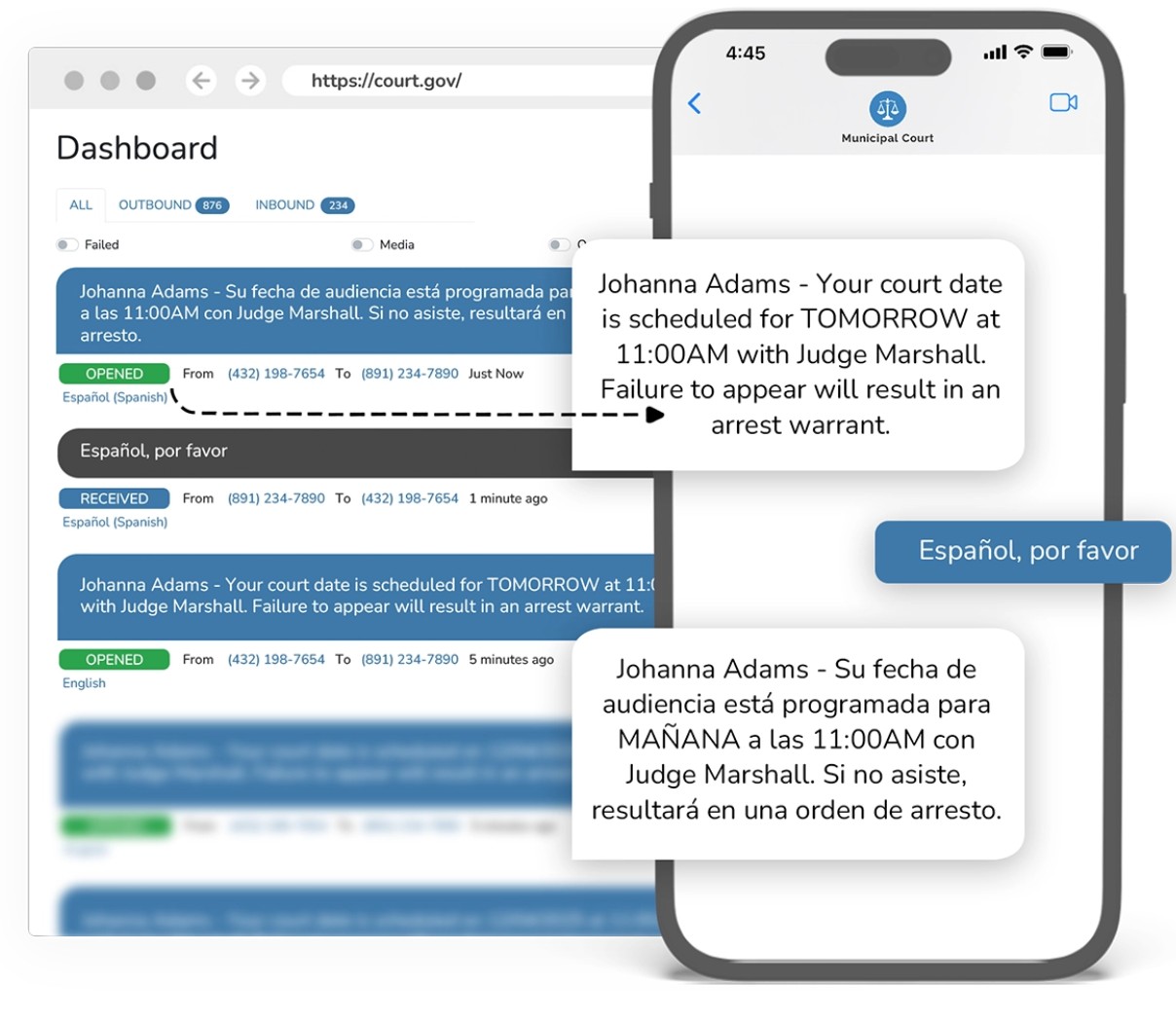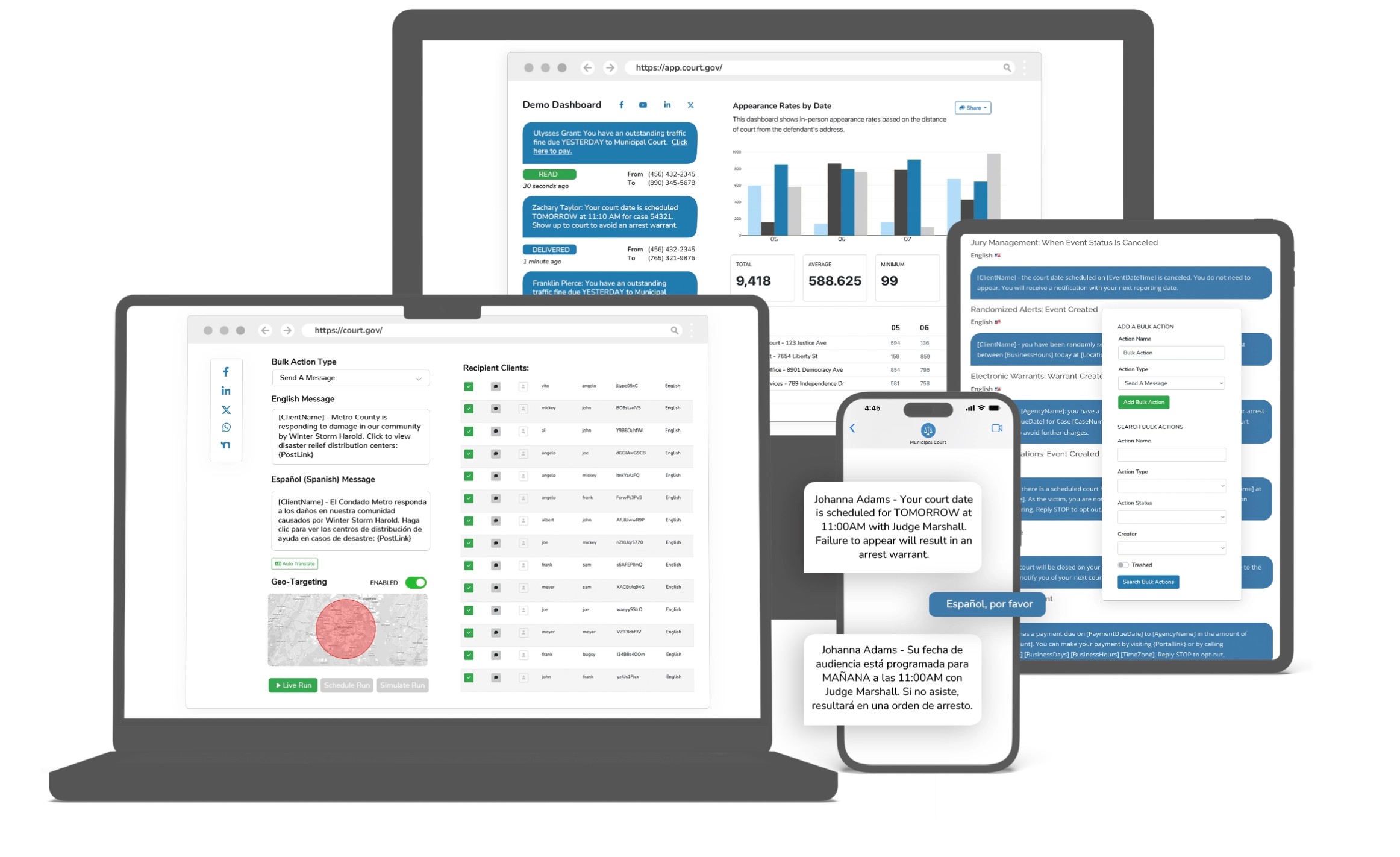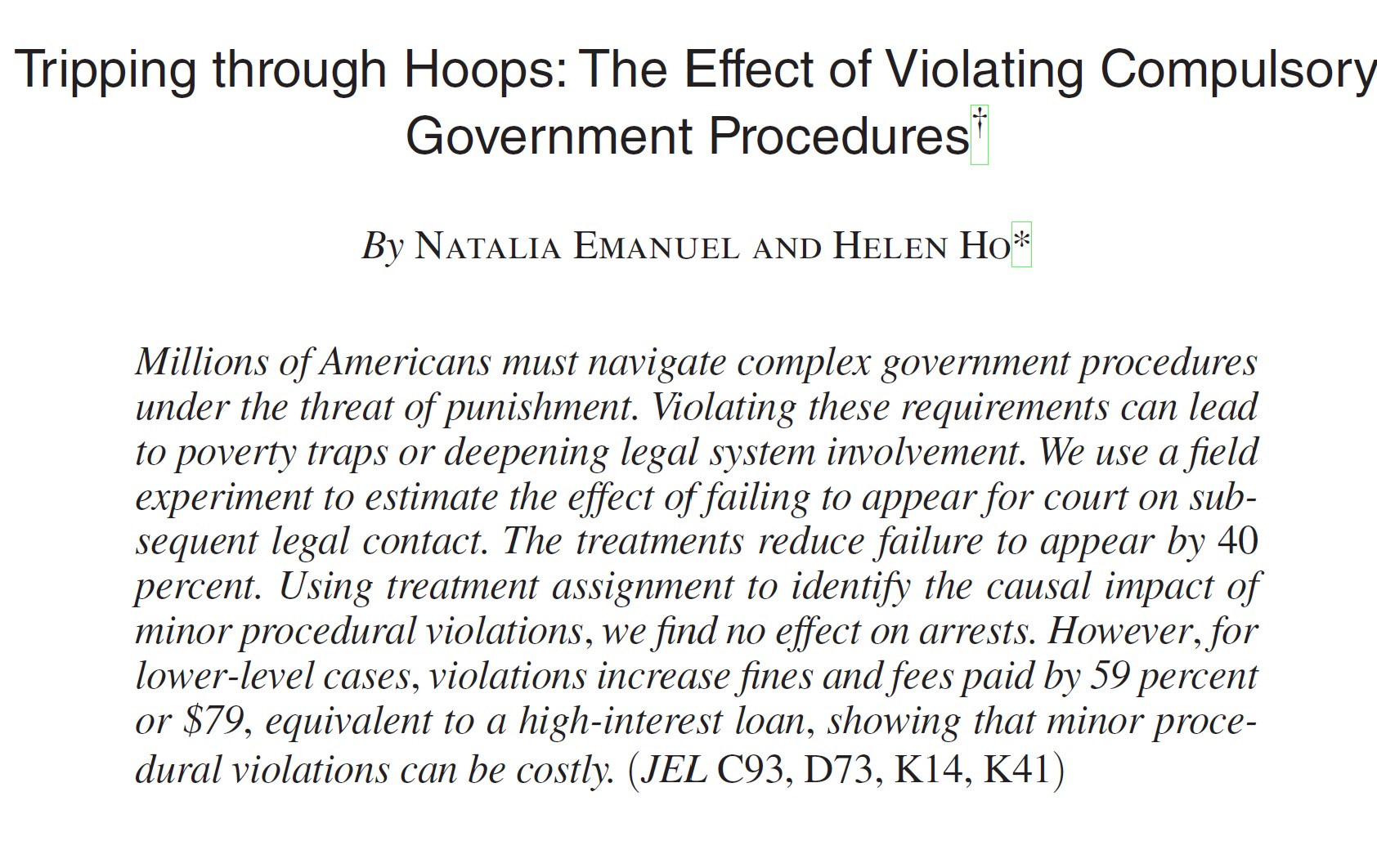There is a lot to analyze in this study, and I plan to revisit it over the next few months. But even on first read, it clearly demonstrates why a tool like eCourtDate can make a significant difference. For now, here is my biggest initial takeaway.
Why Missing Court Is So Expensive: The Hidden Cost of FTAs
Most people do not skip court to avoid accountability. They skip because they forgot, didn't understand the instructions, couldn't find childcare, or couldn't risk losing a day's wages by waiting in a courtroom hallway.
And the price for that mistake? About $79, on average.
A new study by economists Natalia Emanuel and Helen Ho, published in the American Economic Journal: Economic Policy, found that failure to appear (FTA) for a low-level hearing, like a traffic ticket, results in a 59 percent increase in fines and fees. This adds about $79 per case. It might not seem substantial at first, but it means the court has essentially become your lender, charging an equivalent of a triple-digit APR.
In some cities, that is worse than a payday loan.
The researchers describe this as a form of a high-interest loan from the court. It is not a fringe finding. The randomized controlled trial involved over 30,000 defendants in a mid-sized U.S. city. People who missed court were automatically convicted and faced fines, warrant fees, license suspensions, and additional penalties. Even if they paid later, the damage was already done.
But there is good news here, too. Text message reminders reduced FTAs by 40 percent.

That is the part we are proud of. The study explicitly names eCourtDate as one of the leading tools used by courts to run supportive two-way text systems. As the authors write:
“Several services have emerged to help courts administer these two-way texting programs, such as eCourtDate, Uptrust, and Stanford's Court Messaging Project” (Emanuel & Ho, 2024, p. 297).
When defendants received reminders that included instructions on how to reschedule or seek help, they showed up more often, paid less, and avoided the snowball effect of procedural penalties.
The takeaway? Most people want to comply. They just need a system that works with them, not against them.
We believe that technology should make justice more accessible and less costly. This study demonstrates that with the right tool, like eCourtdate, courts can save time, improve appearance rates, and eliminate the practice of punishing people for poverty through the process.
Use our FTA calculator to see how reminders pay for themselves.

Citation
Emanuel, N., & Ho, H. (2024). Tripping through hoops: The effect of violating compulsory government procedures. American Economic Journal: Economic Policy, 16(3), 290–313. https://doi.org/10.1257/pol.20220331

About Greg Shugart
Director of Government Relations
Greg Shugart brings over 30 years of public sector experience to the eCourtDate team, with a background in court administration, criminal justice reform, and government operations. He previously served as Criminal Courts Administrator for Tarrant County, Texas, where he led statewide-recognized initiatives in pretrial modernization, court communications, and system efficiency. Greg now contributes to eCourtDate’s strategy and partnerships, helping agencies implement technology that improves access, compliance, and trust in the justice system.
